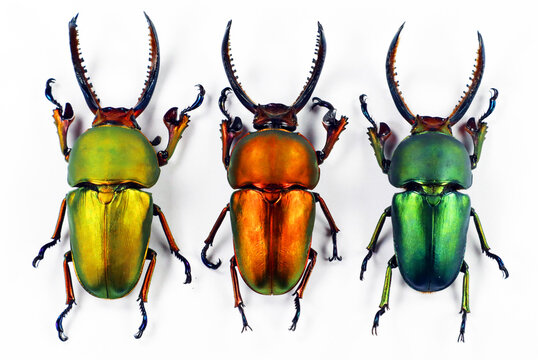Beetles: The Most Diverse Group of Insects
Beetles are a diverse group of insects that make up almost 40% of all known insect species, with over 400,000 species described worldwide. From the scarab beetles worshipped by ancient Egyptians to the ladybugs that are beloved by gardeners, beetles play an important role in ecosystems around the world.
The Anatomy of Beetles
Beetles belong to the order Coleoptera, which means "sheathed wings" in Greek. This refers to the hard, protective forewings that cover the beetle's delicate hindwings, which are used for flight. The hard exoskeleton of beetles provides protection from predators and allows them to inhabit a variety of environments.
Beetles also have a unique mouth structure, consisting of mandibles that move horizontally instead of vertically, allowing them to grasp and chew their food with incredible strength.
The Diversity of Beetles
Beetles can be found in nearly every habitat on Earth, from rainforests to deserts to polar regions. They have adapted to live in a wide range of environments and play important roles in ecosystems as pollinators, decomposers, and predators.
Some of the most well-known beetle species include ladybugs, scarab beetles, weevils, and ground beetles. Ladybugs are often used in agriculture as natural pest control, while scarab beetles were revered by ancient Egyptians as symbols of rebirth and regeneration.
Beetles also come in a wide range of sizes, from the tiny featherwing beetles that are less than 1 millimeter in length to the massive titan beetles, which can grow up to 17 centimeters in length.
The Importance of Beetles in Ecosystems
Beetles play a critical role in ecosystems as decomposers, pollinators, and predators. Many species of beetles feed on dead plant and animal matter, breaking it down and returning nutrients to the soil. Other species of beetles pollinate flowers, helping to ensure the survival of plants and the animals that depend on them.
Some species of beetles are predators, feeding on other insects and helping to control pest populations. Ground beetles, for example, are known for their voracious appetite for slugs, snails, and other garden pests.
Threats to Beetles
Despite their incredible diversity and importance in ecosystems, many species of beetles are threatened by habitat loss, climate change, and other environmental pressures. In particular, species that are specialized to certain habitats or that have small ranges are at risk of extinction.
In addition, some beetle species are considered pests and are targeted for control measures. While these measures can be effective in controlling pest populations, they can also harm non-target species and disrupt ecosystems.
Conclusion
Beetles are a diverse and important group of insects that play critical roles in ecosystems around the world. From their unique anatomy to their incredible diversity and ecological importance, beetles are truly fascinating creatures that deserve our admiration and protection. As we continue to learn more about these amazing insects, it is our responsibility to work to protect them and ensure that they continue to thrive in the world's ecosystems.


Comments
Post a Comment